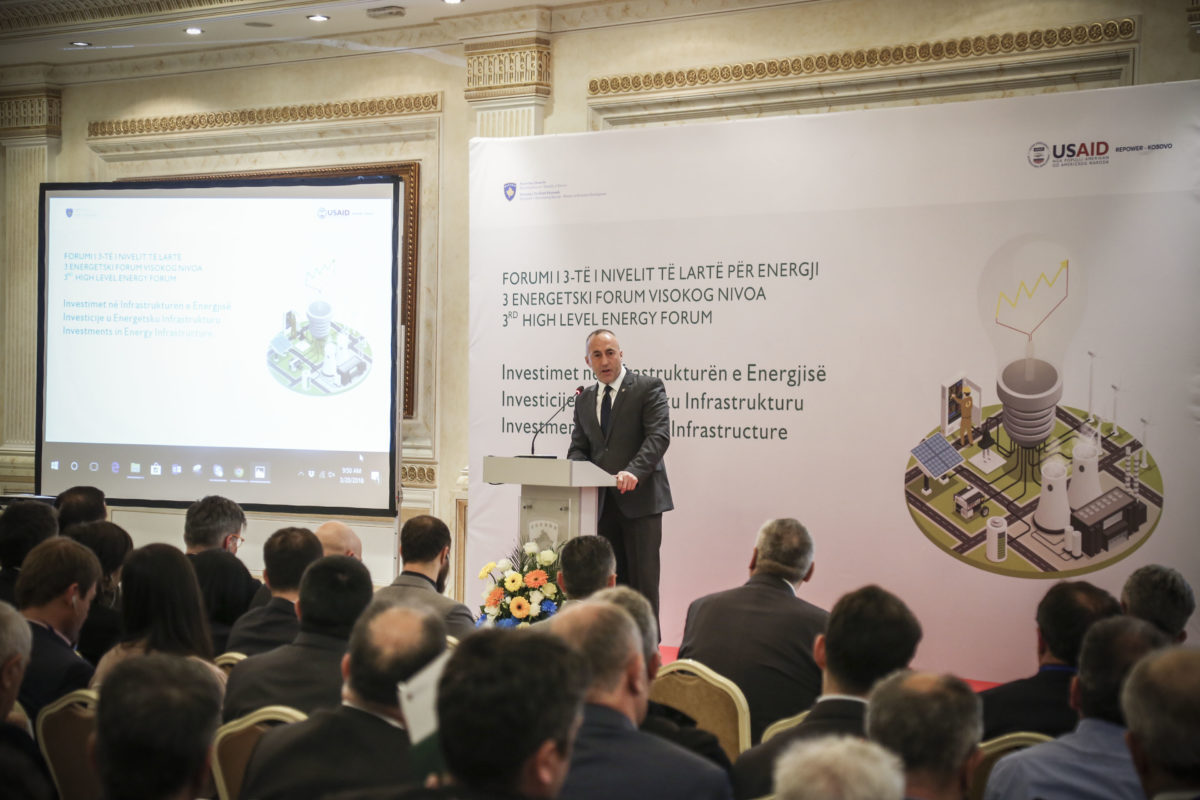“We know and feel the obligation and responsibility we have towards generations to be oriented and focused on renewable energy… We have given priority to alternative and renewable energy, we are open to the market both for wind power and solar energy, we welcome new developments and new proposals for the possibility of investing in solar energy at a greater capacity, and remain open to all ideas for renewable energy.”
These statements were made by Kosovo’s Prime Minister, Ramush Haradinaj at a forum on Energy Infrastructure, which was organized by the local Ministry of Economic Development, in cooperation with the United States Agency for International Development (USAID); an event which was also attended by, among others, Christian Heldt, head of the Political, Economic and European Integration, EU Office in Kosovo, and deputy director and legal advisor to the Energy Community Secretariat, Dirk Buschle.
In order to attract investments in the renewable energy sector, Haradinaj has also urged financial institutions, such as the World Bank and the European Bank for Reconstruction and Development (EBRD) to provide support, in order to enable the country to “go for a new technology and no longer depend on the old technology”.
Although no specific information was provided on when and how solar and wind power projects will be developed, the official commitment of Haradinaj towards renewable energies has to be welcomed, as these may provide cheap and scalable solutions to a country with a strong need for increasing its power generating assets.
The most recent action taken by the Kosovo government to tackle this issue was the construction of a new coal power plant, the ‘Kosova e Re' Power Plant, which was approved late last December.
The project consists of an upgrade of the 27-year old lignite-fired Kosovo B Power Station (540 MW) in Obilić, an investment which is also being considered necessary by the EU, in order to replace and close the 40-year old Kosovo A Power Station (345 MW), near Pristina.
The EU urged Kosovo to do more for renewable energies in April of last year. The most recent plan for renewable energy development put in place by the Kosovar government dates back to the summer of 2016, and includes the addition of just 10 MW of solar power, while targeting around 250 MW of renewables.
This content is protected by copyright and may not be reused. If you want to cooperate with us and would like to reuse some of our content, please contact: editors@pv-magazine.com.




I have 12 acres piece of land in Kosovo – Illyricum and am interested in solar panels.
Nicola Tesla was born in Illyricum. Is fair to say that energy is a intellectual property of Illyricum. Energy tax will help not just Balkan but also will build the future better than fossil fuel that destroys the earth beyond recovery. Earthquakes have increased to un-presidented ways up to 1600 per month or 20000 a year and climate increase due to heat crust of the earth from extracting 93 million barrels of fossil fuel from inside the earth.